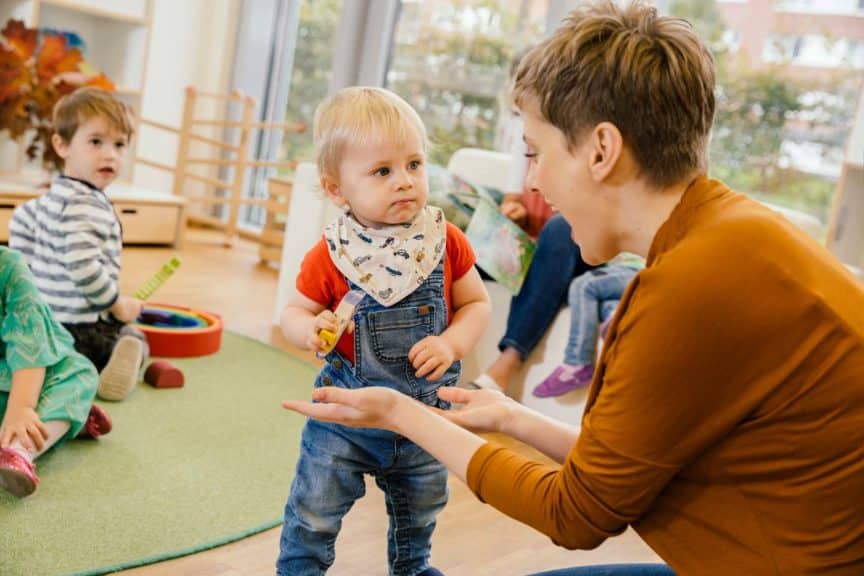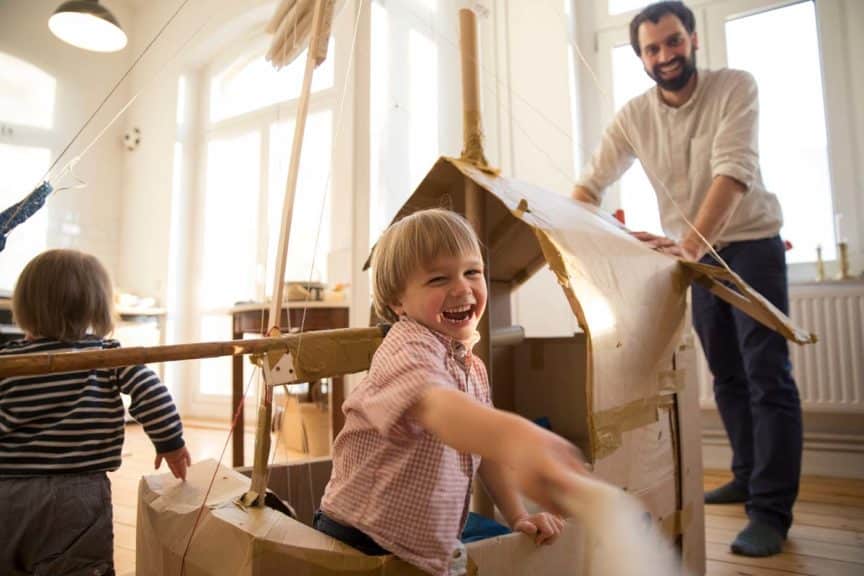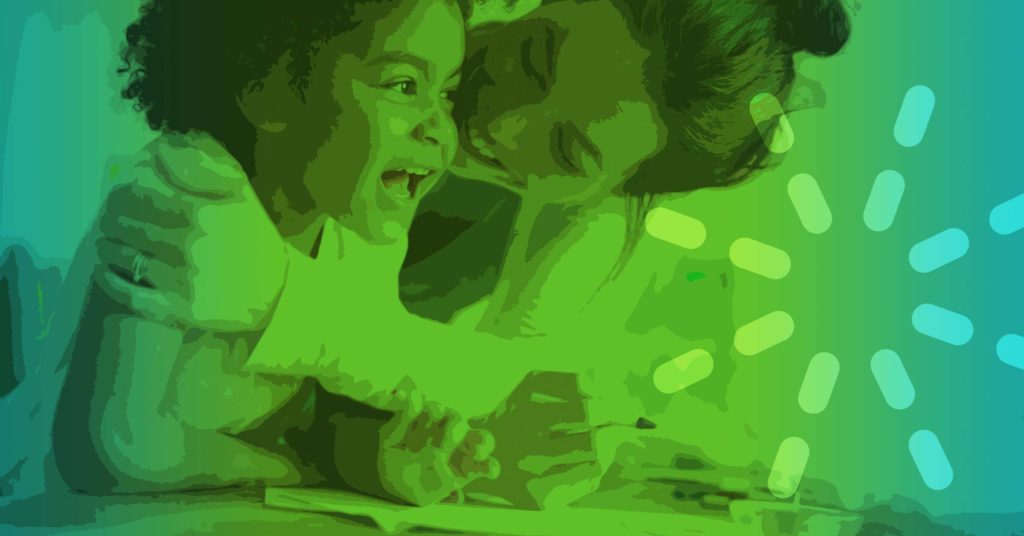Teaching preschoolers might seem simple enough to some people. To be honest with you, I was terrified of three-year-olds!
What was I supposed to do if one of them started to cry, throw a tantrum, or have an accident? Questions and worst-case scenarios flooded my mind.
But my biggest worries subsided when I was told, “Look. If you can play, you can teach!”
I can do that, I thought. It became my motivation and comfort.
Simple, But True
The idea of “if you can play, you can teach” almost sounds too simple to be true—and you might think I’m crazy. Believe me, I had questions at first too!
You’re likely thinking, don’t you need to have special training? Don’t you need to be a professional teacher? Can we really make a difference in young children’s lives by playing with them?
Research gives us a very big YES!
The biggest emphasis around this topic is the value of play in children’s learning. Play is a “power boost” for early learning and there are articles written that support the idea that young children must move to learn. It’s often been said, “Play is the child’s work.”

So, if you can play—yes, you CAN teach!
You see, because young children are not yet able to use their minds alone to “play” with ideas, they understand ideas by physically playing with things they can touch. It’s not enough for a child to hear words from the Bible or even memorize them—they are just memorizing words with no knowledge of what they actually mean. They are simply repeating what they’ve head without enlightenment.
Young children understand ideas by physically playing with things they can touch.
Did you know? Words alone are the least effective way humans learn—and that includes adults!
Because children have such limited life experience, this is even more true for them. A child is not likely to gain much understanding through merely hearing words alone. For an idea to make sense to a young child, he or she must DO something with it—and that’s play!
But this kind of play isn’t mindless—it’s important to be intentional.
4 Characteristics of Intentional Play
1. Teachers prepare so that play activities have purpose.
In my class, each teacher prepares one activity—usually an art activity or a game. Then we usually have blocks and dramatic play materials out where kids can use them freely. Free play allows the kids to express what they are thinking.
2. Teachers play by building a relationship with each child.
We should be intentionally connecting with the children in the room, creating space for trust and friendship. What we should NOT do is talk to other adults, text, prepare another activity, or take a break!
3. Teachers use their shared play.
We should connect what the child is doing to what God’s Word says. To do this, simply describe the ways you see kids putting God’s Word into action—and you have turned play into Bible learning!
There are lots of options here! You may go on to relate a detail of the Bible story or the Bible verse. You might ask questions about the child’s play and link those answers to the big idea of the day.
(If you use a curriculum like Gospel Light, these comments and questions are provided right in your curriculum!)
4. Teachers use the simplest opportunities!

When you’re enjoying time with the kids, amazed by what they are doing, or having fun with them—say so! Delight and give thanks to God. Simply say, “Thank You, God, for this (good food, lovely friend, happy) time.”
Little ones learn that God is interested in every part of life, that He is good, and that there is joy in thanking Him anytime!
When you hold even a crying child, take a moment to thank God aloud for him or her. And then thank God for ways He shows His love for that child. This helps the child connect love, blessing, and comfort with God.
Building Blocks
As kids have repeated opportunities to think and talk about Bible truth, they have crafted more of those “mental building blocks” that create a framework for understanding.
So, by the time you’re doing what most people associate with “teaching”—telling the Bible story, singing a song, or reviewing the verse, you’ve actually already taught the children through play.
Children now have some building blocks to support their understanding!
As little kids discover that God’s Word connects to their own lives every day and our actions demonstrate Jesus’ love, things begin to line up and link to build a foundation of spiritual truth. We’re leading them to Jesus!
Play, listen, and talk.
We can do those three things with preschoolers—and do it intentionally. The results are beautiful to witness! Try it and see your kids begin to understand who God is and what it means to join His family.

Play with your preschoolers with a higher purpose!
Giggle and wiggle. Run and sing. This is the wonderful world of preschoolers.
So how do we teach energetic little ones about Jesus? We let them play while they learn with Gospel Light Sunday School!
Kids will delight in the games, drama, art, music, storytelling, and puppets as they learn about God’s Word and how to apply it to their daily lives. It’s as simple as Play. Listen. Talk.
Learn more at GospelLight.com/preschool.











